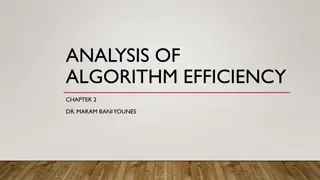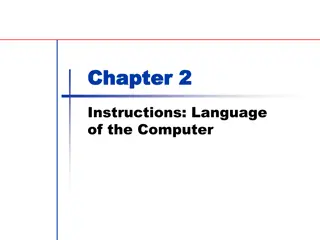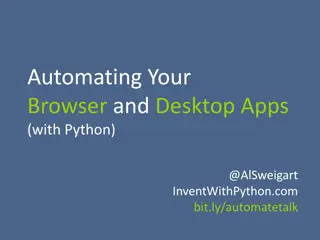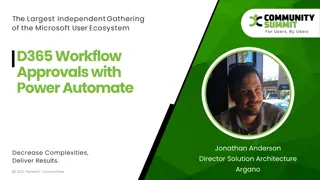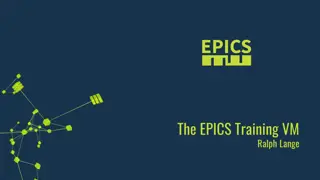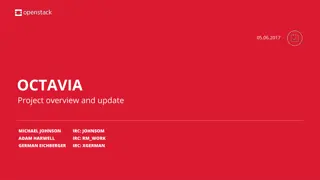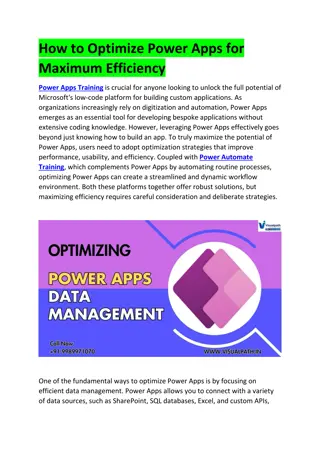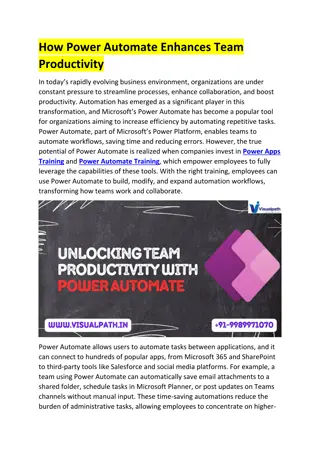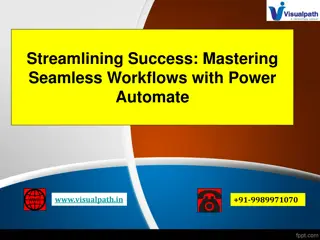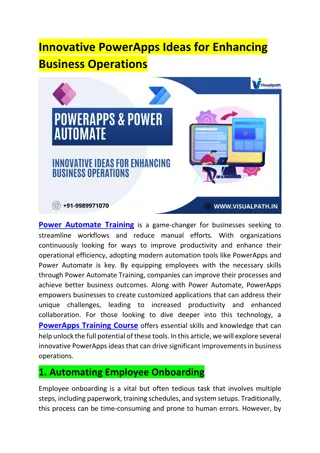Automate Operations for Efficiency with Ansible
Gain efficiency by automating operations with Ansible. Learn about DevOps and its benefits, the introduction of Ansible, components of an Ansible playbook, and other tools involved. Understand the misconceptions of DevOps, explore tools like Ansible, Git, Rundeck, and SSH, and delve into Ansible's agentless configuration management and playbook components.
Download Presentation

Please find below an Image/Link to download the presentation.
The content on the website is provided AS IS for your information and personal use only. It may not be sold, licensed, or shared on other websites without obtaining consent from the author.If you encounter any issues during the download, it is possible that the publisher has removed the file from their server.
You are allowed to download the files provided on this website for personal or commercial use, subject to the condition that they are used lawfully. All files are the property of their respective owners.
The content on the website is provided AS IS for your information and personal use only. It may not be sold, licensed, or shared on other websites without obtaining consent from the author.
E N D
Presentation Transcript
Modernize Your Operations Gain efficiency by automating with Ansible
Brief touch on DevOps and its benefits Introduction of Ansible Components of an Ansible Playbook Other tools involved (git, rundeck/tower) The process revolving around a team Demo s
DevOps? What is it? Ben Rockwood states in his Bottoms Up! talk, DevOps is a World View involving the following 3 major components - Collaboration of People - Convergence of Process - Creation/Exploitation of Tools
Benefits of DevOps - Reduces Tribal Knowledge - Consistency - Repeatability - Speed - Reclaim your time and focus - Empowering non-IT staff
Misconceptions of DevOps - Not fit for IT Education - Only for start ups or private sector - Only needed for mass scale of single apps - Not needed if you only need to do something once
Tools? Ansible Git (ISU s gitlab @ code.at.illinoisstate.edu) Rundeck (possibly Ansible tower in the future) SSH (for passwordless authentication)
Ansible Introduction Agentless Config Management over SSH Python based (but you don t need to know it) YAML syntax for just about everything Designed to be very simple Idempotence
Ansible Playbook Components Inventories (static or dynamic host groups) Variables (different values for different envs) Vault (a mechanism for encrypting secrets) Tasks (pre tasks, tasks, and post tasks) Roles (grouping of reusable tasks) Handlers (provides orchestration of events)
Ansible Playbook: Directory Structure group_vars all vars.yml vault.yml dev_webservers vars.yml vault.yml prod_webservers vars.yml vault.yml roles tasks main.yml files templates handlers site.yml dev_inventory prod_inventory ansible.cfg
Ansible Playbook: Inventories Inventories contain the systems that are managed: They are Static or Dynamic [dev_webservers] atweb01a-d.at.illinoisstate.edu atweb01b-d.at.illinoisstate.edu atweb01c-d.at.illinoisstate.edu
Ansible Playbook: Variables - Separate the config from the build - Make playbooks and roles reusable for different systems and environments - Can also set variables in real time using the set_fact module within a task - Link to docs on variables
Ansible Playbook: Vault - Encrypts sensitive artifacts with AES 256 encryption as the default (shared-secret) - Safe to store in private GIT repositories - Managed with the ansible-vault cmd - Mostly used for variables within vault.yml
Ansible Playbook: Tasks Tasks do the work via ansible modules Can be conditional There are many modules that are delivered with ansible to perform just about any operational task. Link to Ansible s Module Index
Ansible Playbook: Roles A grouping of tasks that is separate from the main playbook Reusable across playbooks, systems, and environments Ansible-Galaxy is a mechanism where users can share roles with the community
Ansible Playbook: Handlers Basic event system that allows for responding to change Most common usage involves restarting a service after a config file changes Link to handler docs
Ansible for Windows Combined with WinRM and Powershell Agentless design is maintained List of ansible modules for windows Documentation for Ansible on Windows
GIT Responsible for version control and tracking all system changes Due to the distributed design of git, always be sure to keep local repos on your workstation in sync with the remote repos stored in gitlab
Rundeck Web Based Interface to Execute Ansible Playbooks Role Based Access Control (via ldap groups) for different deployments Gives people a button to push Tracks execution and deployment history and results
Demos Red Hat 7 OS provisioning Our new automated Central Web Infrastructure Central Login Skin deployment A few other operational handoffs




